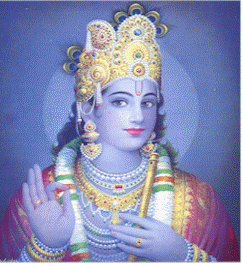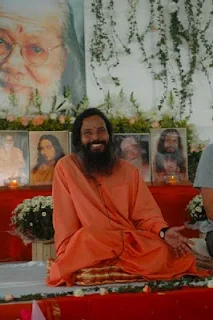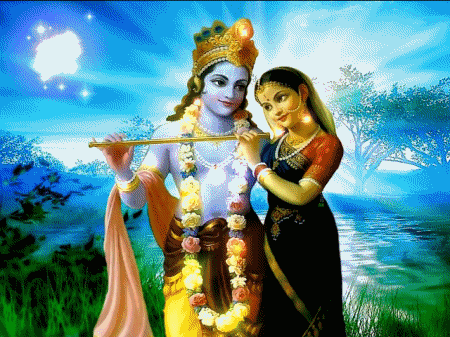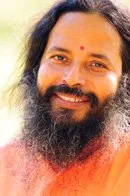paras tasmãt tu bhãvo 'nyo
'vyakto 'vyakãt sanãtah
yah sa sarvesu bhutesu
nasyatu mna vinasati
Far beyond even the unmanifest , there is another unmanifest existence, which is a supreme divine person, who does not perish even though all beings ( elements) perish.(08:20)
Muito além até mesmo do não-manifesto, há uma outra não-manifesta existência, que é uma pessoa divina suprema, que não perece, embora todos os seres (elementos) pereçam (08:20).
Vyakta means the manifested , that is the ida and pingala.
Avyakta means the unmanifest , which is sushumna, are present inside the spine and pituitary.
Vyakta significa aquilo que é manifesto, que é ida e pingala.
Avyakta significa o imanifesto, que é sushumna , e está presente dentro da medula e pituitaria.
This is the , ham body, kshara body, the perishable body.
Este é o corpo ham, o corpo kshara , o corpo perecível.
Then near the ajna chakra ( soul center) there is akshara, the impereshable and unmanifest. But beyond even this unmanifest avyakta, which is also the sushumna and feeble breath, there is the place of unmanifest existence- a supreme , divine person.
Chegando no chakra ajna ( centro da alma) aí está o akshara, o imperecível e imafifesto. Mas além mesmo deste imanifésto avyakta, que também é o shushumna e a respiração sutil, este é o lugar do imanifesto , a existência supreme, a pessoa divina.
This state is called Purushottama, the supreme self, or sanatana, the eternal.
Este estado é chamado Purushottama, o ser supremo, ou santana o eterno.
In the state of paravastha , one experience the eternal, where there is neither attachment nor detachment, but where there is supreme peace, bliss and joy
No estado de paravastha pode se experimentar o eterno, onde não existe apego nem desapego, onde existe a paz a bênção e o contentamento.
Puja is a subtle and sublime spiritual phenomenon in which the worshipper, in the course of meditation, first dissolves his mundane body to create a divine body for himself, identical in nature with that of his deity, Spiritual Master or preceptor Guru .
Puja é um sutil e sublime fenomeno espiritual, no curso da meditação, primeiro dissolve este corpo mundano e depois cria-se corpo divino por si mesmo, identico em natureza com a deidade , Mestre Espiritual ou Guru preceptor.
Thereafter, visualising the tejas of the deity, picture of Spiritual Masters and Guru preceptor in his heart through concentrated meditation upon his/her form, the divine effulgence into the image for the time being in order to achieve a subject-object relationship, for making subjective with the deity Spiritual Master or Guru preceptor , who is identical with the Self, and starts communicating with God from the same elevated plane.
Depois disso, visualizando o tejas ( fogo divino) imagem do Mestre espiritual e Guru preceptor no seu coração , através de concentrada meditação em direção á frma dele ou dela , a divina iluminação dentro da imagem , por enquanto a fim de alcançar a relação sujeito-objeto, para promover a subjetividade com a deidade , que é identica ao Self, e se estabelece a cominicação com Deus no mesmo plano elevado.
Puja ritual of a deity Spiritual Masters and Guru preceptor not only sheds light on the primeval concept and the character of that deity, but also reflects changes, which he or she has undergone from time to time.
Puja , ritual para uma deidade, Mestre Espiritual e guru preceptor não apenas dá luz ao conceito primordial e ao caráter da deidade, Mestre espiritual e Guru preceptor, mas também revela as mudanças que ela ou ele atravessa através do tempo.
 |
shir shankara uvãca
pindam kundalinisaktih padam hamsamudãhrtam
rupam binduriti rupatitam niranjanam
Pinda is the power of kundalini. Pinda is also said to be hamsa. Rupa is the bindu or atom point , and rupatita ( beyond form) is attributeless.
pinda é a força da kundalini. pinda é também hamsa rupa é bindu ou o ponto atomico , rupatita além da forma, sem atributos |

















